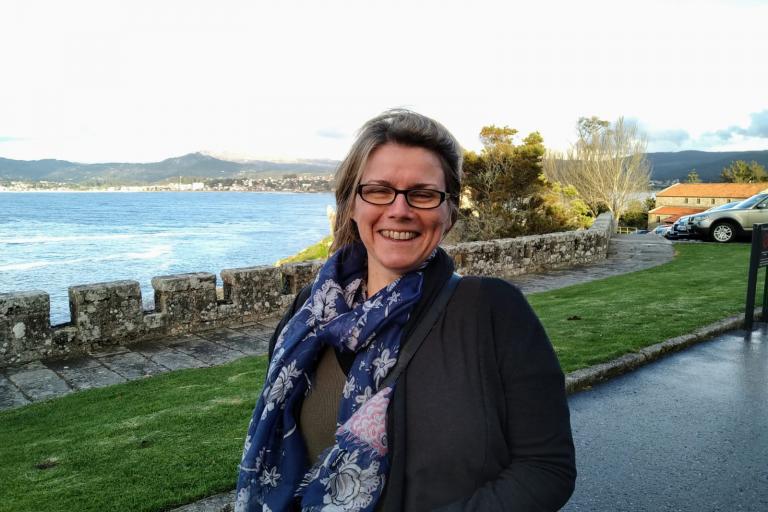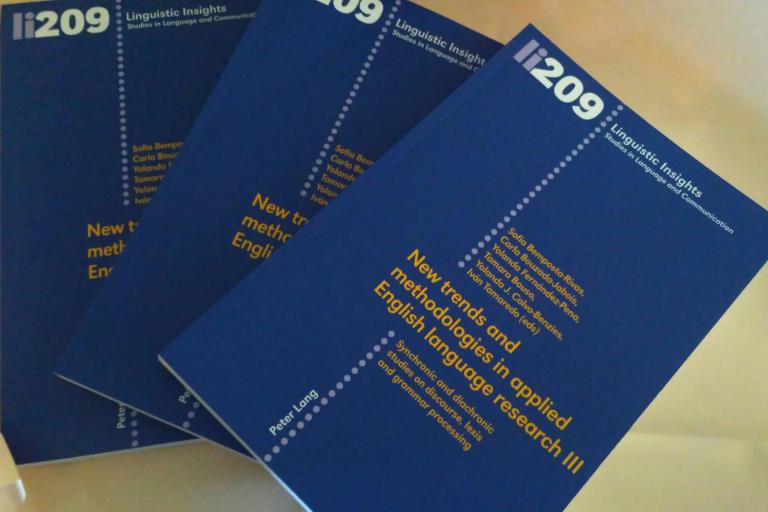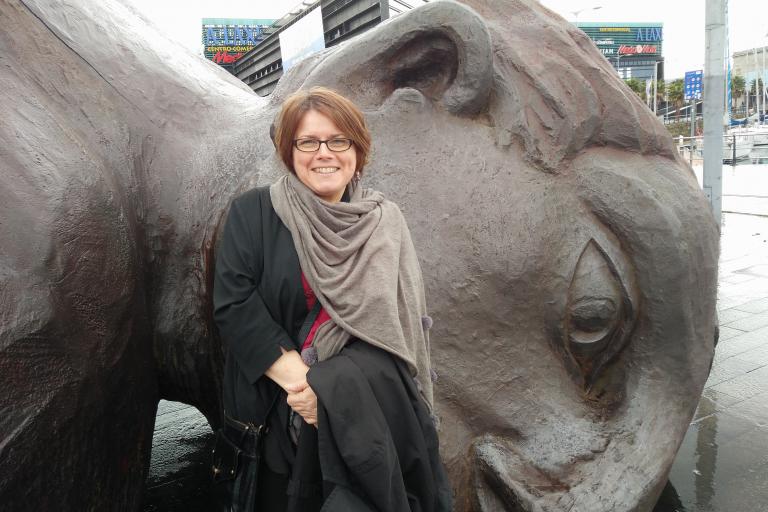On day 1 they provided a general introduction to the basic tenets of Construction Grammar in tandem. Referring to Usage-Based-Theory á-la-Bybee as the mechanism to store linguistic information in our minds, they then explained how our mental constructicon profiles morphological, lexical, syntactic, pragmatic, stylistic and social information. Later, Prof. Bergs lectured extensively on language change and Construction Grammar in the history of English, and provided new answers to old questions by explaining how Construction Grammar deals with notions such as analogy, reanalysis, actuation, actualization, grammaticalization and preemption, among others. After their talks and question time they took some notes on the research topics that the different members of the audience (around 20 PhD students, postdoctoral researchers and Faculty members) are working on. They also presented, under our request, the journals they edit: Linguistics Vanguard (Editor-in-Chief: Prof. Bergs) and Constructions (Editor-in-Chief: Prof. Hoffmann).
On day 2, Prof. Hoffmann gave an in-depth illustration of how Construction Grammar accounts for language variation and change in present-day English in combination with other domain-general cognitive principles such as end-weight, animacy and information structure. He applied Construction Theory to variation in present-day English, including world-wide varieties of English derived from contact-language situations, such as pidgins, creoles, and the L2 varieties portrayed in Schneider’s (2003, 2007) Dynamic model. He focused particularly on variation at the lexis and grammar interface by analyzing, for example, comparative correlatives (the more… the more…), and also explained how Construction Grammar can crucially incorporate cognitive sociolinguistics in its model. Finally, they took Construction Grammar and Cognitive Sociolinguistics beyond the sentence level to analyze particular genres as micro- , meso – and macro constructions.
The last part of the seminar consisted of a more relaxed session in which Prof. Hoffmann and Prof. Bergs addressed all our research questions and helped us find new avenues, perspectives and tools for our investigation.
Thank you Alex and thank you Thomas, for two highly productive and fun days, we hope to have you back in Vigo soon!
Seminar available at http://tv.uvigo.es/serial/index?id=2363







